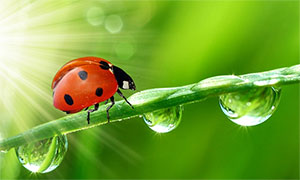Look for the Drop
Our mission to educate the public about the water they drink and share with their families, and to show them why drinking pure distilled water is healthier and safer than drinking publicly provided and managed water. As a part of our effort, Look For The Drop is an online resource for water and environmental news.

There are many places you can go to drop off your recyclables in the city of Chicago. Below is a list of convenient centers. You can also view http://tinyurl.com/nlk27
-North Park Village Recycling Station
5801 N Pulaski Rd, Chicago, IL 60646
Open 9am-5pm
This center accepts aluminum and steel cans; brown, clear & green glass bottles and jars,
plastic bottles (#1 & #2 only); newspaper; magazines; office paper; cardboard
-Uptown Buyback Center & Recycling Station
4716 N Sheridan Rd, Chicago, IL 60640
(773) 821-1351
Open 12pm-5pm, Closed Tuesdays
This center accepts aluminum & steel cans; brown, clear & green glass bottles and jars;
newspaper; cardboard
-Wrightwood Neighbors Recycling Station
2600 N Lincoln Ave, Chicago, IL 60614
(773) 821-1351
Open 7am-9pm
This center accepts aluminum & steel cans; brown, clear & green glass bottles and jars; newspaper
-Railyard Buyback Center
1325 E 70th, Chicago, IL 60637
(773) 493-1470
Open M-F 9am-3pm
This center accepts aluminum & steel cans; brown, clear & green glass bottles and jars;
newspaper; magazines; office paper; cardboard
-Edco Recycling
8224 S Vincennes Ave, Chicago, IL 60620
www.edcorecycling.com
Open M-F 8am-4:30p & Sat 8am-12pm
This center buys metals, computers and old auto parts
Manufacturing goods from recycled materials requires less energy than producing goods from virgin materials.
Did you know that glass can be recycled over and over again? Make sure to recycle your glass bottles!
Replace your old thermostat with a programmable one. This will allow you to fine tune your heating and cooling
cycles for when you are not at home.
Start using cloth tote bags for your grocery shopping. This will help keep a lot of plastic bags out of the landfills!
Attach aerators to your faucets. You'll use less water, but the water pressure will remain nearly the same as before.
Turning your thermostat down 1 degree can save up to 10% on an annual heating bill.
Turn your computer to "Energy saving" mode to save money on electricity bills!
When less energy is needed, fewer fossil fuels are burned and less carbon dioxide is emitted into the atmosphere.
Recycling saves enough energy each year to provide heat and light for 400,000 Illinois homes.
Myth: "Bottled water is the same as tap water"
Truth: Many people think that because some bottled water begins with a municipal source, that the bottles are filled with the equivalent of tap water. The truth is, our water is purified to near distilled quality. Aside from eliminating 99% of all contaminants found in tap water, our water tests routinely at only 2-4 parts per million of total dissolved solid (TDS) - without Chlorine. Tap water from the City of Chicago usually runs between 175-200 part per million TDS and has plenty of Chlorine. Essentially, we let the city water department handle the first part of the purification process, then we do the part that brings you fantastic water.
Myth: "Plastic bottles are filling up our landfills"
Truth: While it is undeniable that plastic is bad for the environment and that recycling rates need to improve drastically, reports of plastic bottles taking over the Earth's surface are greatly exaggerated. The fact is, plastic bottles make up only 1/3 of 1 percent of the total waste stream. While we all need to do a better job of recycling, plastic bottles account for only a minute portion of the trash we generate. The bottled water industry has been aggressively reducing the amount of plastic used in its water bottles by as much as 40% over the last few years. Ultrapure has implemented the use of Biodegradable bottles to avert this issue in many cases. Many cities, including the City of Chicago, do not offer curbside recycling. No wonder recycling rates are so poor.
Myth: "It takes a lot of oil to produce water bottles"
Truth: Some estimate that it takes 1.5 million barrels of oil to produce a year's supply of water bottles. While that sounds like a lot, keep in mind that the US consumes 7.7 billion gallons of oil per year, or 21 million per day, or 875,000 gallons per hour. So a year's supply of bottles is less than 2 hours of oil consumption. Plastic bottles account for just 2/10ths of 1 percent of our oil consumption. By comparison, plastic bags consume 12 million barrels of oil per year and are recycled at only 7%.
Myth: "Tap water is regulated, but bottled water is not"
Truth: Most people don't realize that bottled water is actually more regulated than tap water. Tap water is regulated by the EPA. They determine how much lead, mercury, arsenic and other toxins are safe to drink. Those limits are usually set by determining the point at which people start to get sick and by how much it costs for the water department to treat. In contrast, bottled water is regulated by the FDA and the Illinois Dept. of Public Health. Because bottled water is considered a packaged food product, rigid inspections and meticulous records are mandatory.
Myth: "Water bottles contain harmful chemicals"
There has been recent debate over the presence of chemicals like BPA in plastic water bottles. But these chemical are only found in bottles labeled recycle symbol #7 polycarbonate, not in recycle symbol #1 PET bottles. Even the critics of BPA will tell you that the recycle symbol #1 PET bottles like those used by UltraPure are the safe choice.